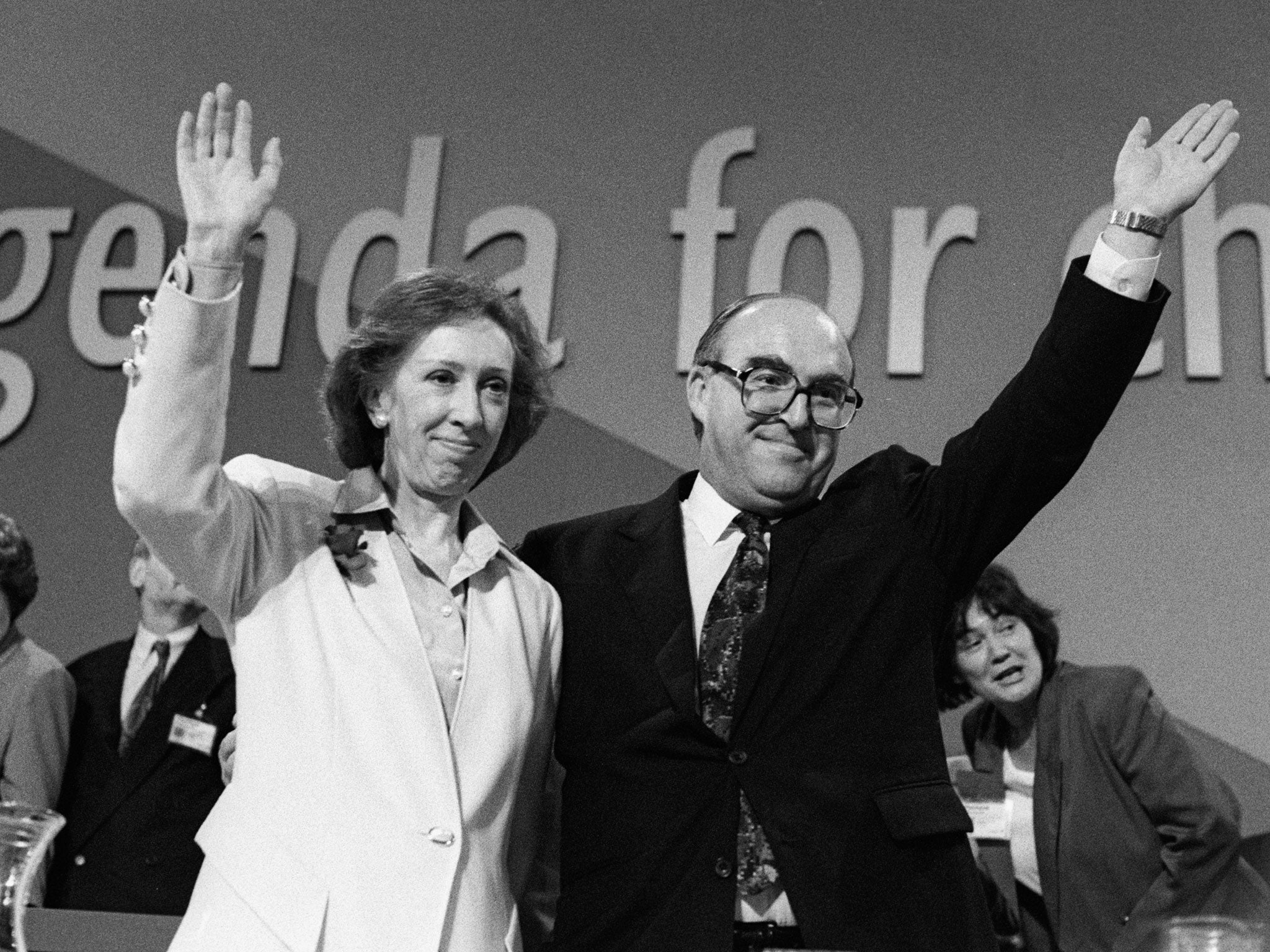It's pretty clear that things cannot go on as they are. The Official Opposition has a constitutional duty to hold the government to account. That is simply not happening at the moment. Instead they are busy drawing battle lines in a civil war.
One of the favourite arguments of Corbyn's supporters is that he has a Mandate. What's more, it's an Overwhelming Mandate. Sometimes it's even an Unprecedented, or Historic, Mandate. No other Labour leader was elected with such support as him, the theory runs. Therefore, his detractors in the PLP should shut up, or find somewhere else to go.
I'm going to sidestep the argument about who has more legitimacy, the party leader elected by the membership, or the MPs elected by the voters. That's for another day.
What does interest me though is that claim, that Corbyn has a greater mandate than any other Labour leader. Does he?
Labour has only allowed non-MPs a say in who becomes the leader since the early 1980s, so the sample size is limited. It's also complicated by the fact that for a while they experimented with some ludicrously complicated ways of choosing the leader. But, for comparison, here are the winners since 1983:
1983- Neil Kinnock- 71.3%
1988- Neil Kinnock- 88.6%
1992- John Smith- 91.0%
1994- Tony Blair- 57.0%
2007- Gordon Brown- Unopposed
2010- Ed Miliband- 50.65%
2015- Jeremy Corbyn- 59.5%
Yes, Corbyn did well. He won with more support than Miliband, Brown (who admittedly was never put to the test) or Blair. But his level of support pales into insignificance when set against the landslides that Kinnock and Smith enjoyed. Kinnock's 1988 vote is even more impressive, given it came off the back of a left-wing challenge in the aftermath of a crushing defeat at the hands of Mrs Thatcher. The average support for a leader in a contested election is 69.7%. Corbyn is some way short of that. His mandate is clear, but it isn't unprecedented.
The standard response to this is that this is the first election where ordinary members were given full say. Up until 2015, Labour used an electoral college, which weighted the votes of MPs/MEPs, members, and affiliates (unions and socialist societies) against each other to varying degrees. Corbyn's support is presented as being somehow purer, or better, than that enjoyed by any other Labour leader.
It is almost impossible to untangle how different rules would have affected previous contests. But I've had a go. I've presumed that only party members were given votes in each of these contests. They are the only consistent element in all those elections. I know this is far from a perfect solution, but it does enable us to partially test Corbyn's support. I've ignored the other sections, so had to multiply the figures by three (Labour's electoral college was in three parts.) Here is my very rough guide to what would have happened had the election of Labour leader been left solely in the hands of the membership:
1983- Kinnock- 82.36%
1988- Kinnock- 72.38%
1992- Smith- 87.9%
1994- Blair- 58.2%
2007- Brown- Uncontested
2010- David Miliband- 54.39% on the 4th round
2015- Corbyn- 49.59%
This method is riddled with inconsistencies. There is no way to compare the trade union members who voted in a separate section prior to 2015. Neither is it possible to account for the registered supporters, who in 2015 paid their £3 to vote and ended up backing Corbyn by 83.76%; they have no direct predecessors. But using party membership alone, the one constant, Corbyn doesn't come out looking great. The only person he outpolls is Ed Miliband, who would have lost on the final round to his brother David.
It also doesn't insulate him from criticism or challenge. Kinnock was challenged from the left in 1988, despite his overwhelming win in 1983 (Labour win, that is...). He was challenged because his leadership had failed to win the national election in 1987. If Corbyn's detractors think he is also failing, then they are right to trigger a fresh leadership election. It isn't a case of 'win it once and keep it for life.' Otherwise Neil Kinnock and John Major would still be at the top of the pyramid.
No matter which way you look at it, the man with the largest Labour mandate is not Corbyn. It is John Smith, who tragically was never given the chance to put it into action.
Jeremy Corbyn does have a mandate from the party members. But it isn't the historic one that people claim he has, and it doesn't justify his perpetual occupancy of the leadership. There are valid reasons he should still be leader. But the size of his mandate isn't one of them.


No comments:
Post a Comment